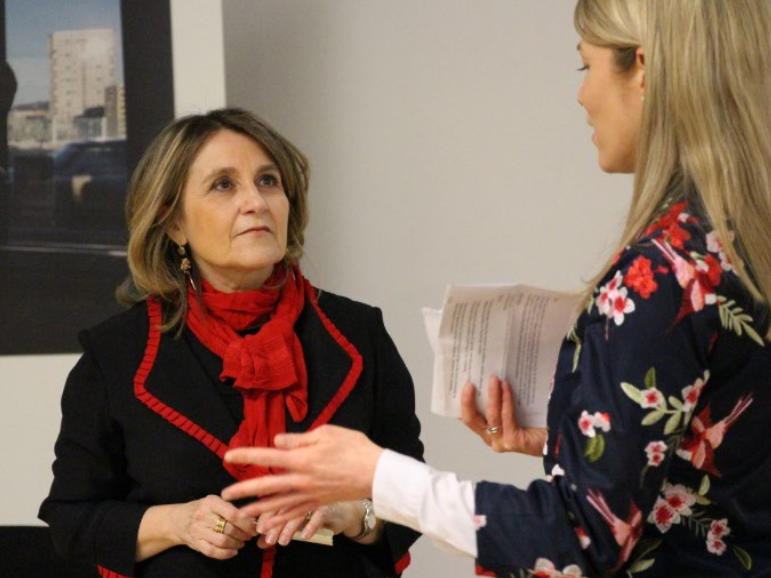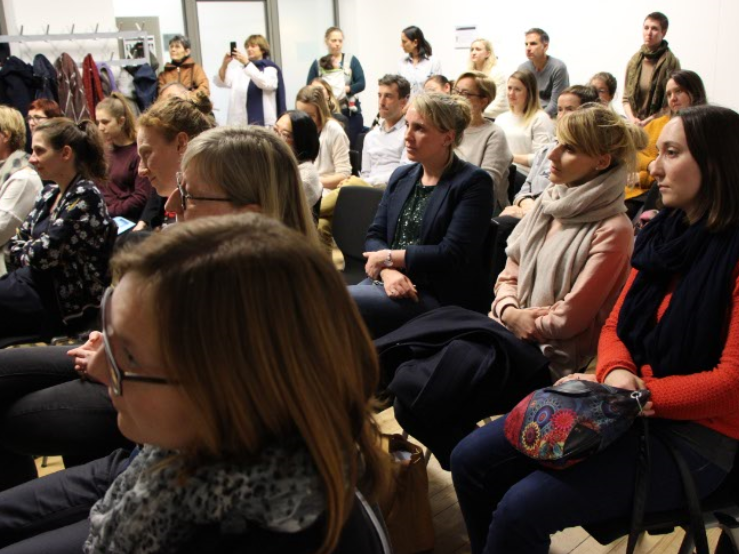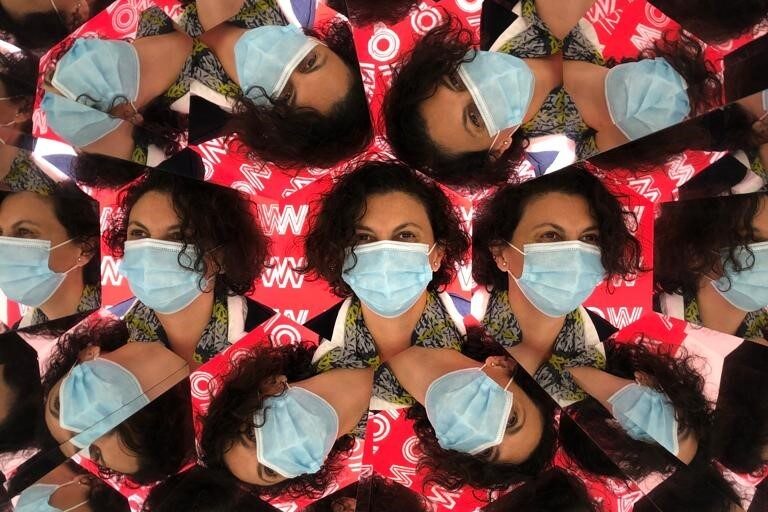I recently participated as a panelist in the opening lecture event of “Portrait of a (Working) Mother” in which ETH Zurich presented a photo exhibition from Marina Cavazza and Eglė Kačkutė honoring International Women’s Day. The exhibition featured, among others, the images and stories of women in science who work for the university. The exhibition preview and lecture included a lively discussion about the choices we make (or don’t consciously make) and how they affect our future. Perhaps it was due to this self-reflective mood that during the apéro that followed the opening event, I found myself sharing the story behind my own personal choice to be more vocal about the challenges women in science face.
You’re a Unicorn
by Renana Gershoni-Poranne, 23 March 2020
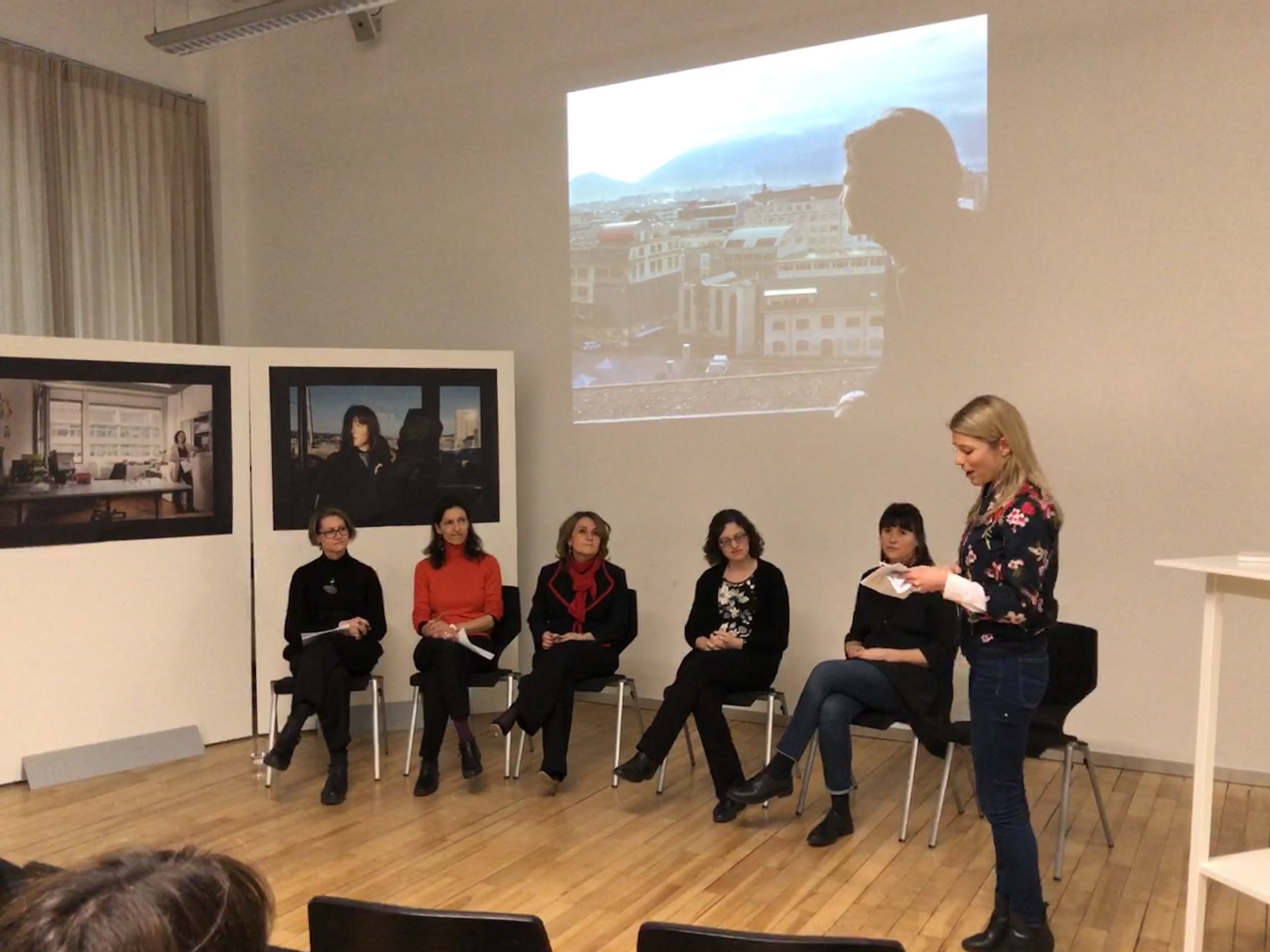
The panelists from left to right: Eglė Kačkutė (Assistant Lecturer in French, Maynooth University; and Associate Professor in French and Migration Studies, Vilnius University); Marina Cavazza (photographer); Simona Scarpaleggia (Head of the Global Initiative "The Future of our Work" at INGKA Group (IKEA)); Renana Gershoni-Poranne (Branco Weiss Fellow, Senior Scientist and Lecturer in Organic Chemistry, ETH Zurich); Daniela Sanjinés (Researcher, ETH CASE Centre for Research on Architecture, Society & the Built Environment, ETH Zurich); Simone Schürle (Assistant Professor (Tenure Track) for Responsive Biomedical Systems, ETH Zurich)
(photo credit: ETH Zurich)
(photo credit: ETH Zurich)
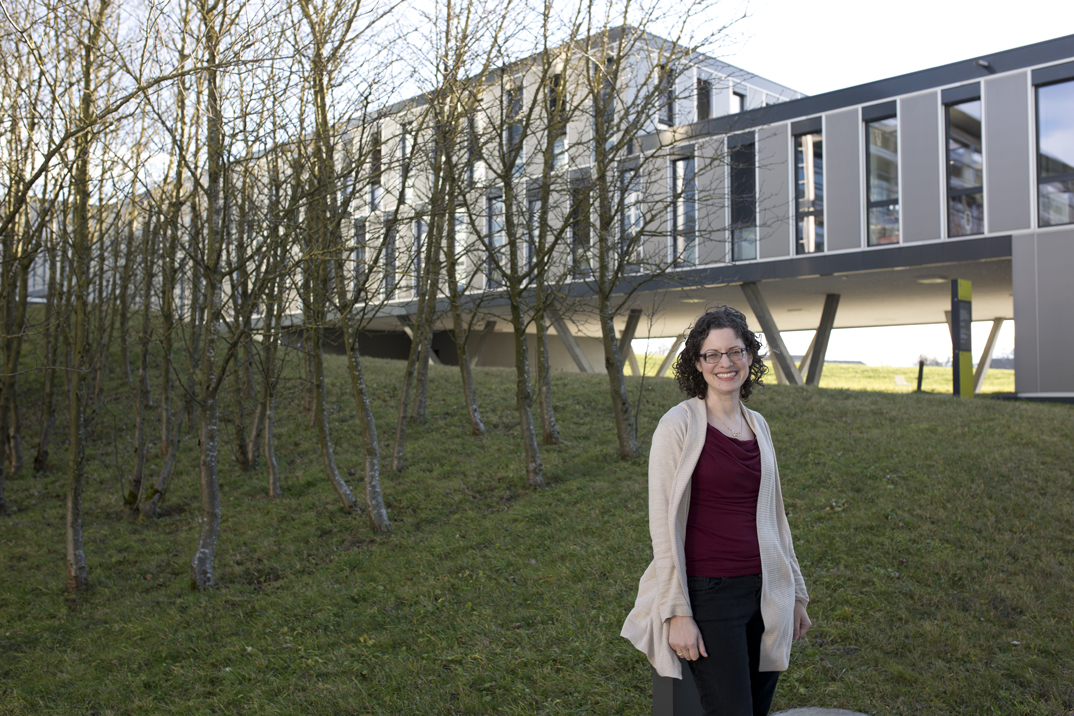
Renana Gershoni-Poranne on ETH Science City Campus (photo credit: Marina Cavazza)
A couple of years ago, I participated in a panel discussion organized by the Society for Women in Natural Sciences. The topic was “How to Survive Your PhD” and the panelists were women at various career stages. Since I first came to Zurich as a postdoctoral researcher and am now a senior scientist, I was in a unique position to shed some light on both of these career choices and was happy to participate. We shared our stories and experiences and tried to give some perspective and advice on a variety of issues, ranging from choosing the right advisor to resolving conflict with coworkers and from balancing professional and personal goals to deciding whether (or not) to pursue an academic career. After the panel for the event, a member of the audience approached me and, while I don’t recall the specifics of what we discussed, to this day one thing still resonates with me:
“You’re a unicorn,” she said.
“I’m a what?” I answered, amused, but also a bit confused. Of course, I knew what the term meant but I had no idea why she applied it to me.
“You’re a unicorn,” she repeated. “You’re the only woman I have ever seen who had kids while working toward her PhD.”
“You’re a unicorn,” she repeated. “You’re the only woman I have ever seen who had kids while working toward her PhD.”
Being called a “unicorn” definitely ranks among the nicest things that someone has ever called me, because, without a doubt, she meant it as a huge compliment. For her, the idea of simultaneously working on a PhD (a huge undertaking) and becoming a mother (another huge undertaking) seemed like an insurmountable challenge. The truth is, however, that I am not a unicorn. I am actually quite boringly traditional: I went to university close to home and then continued for MSc and PhD in the same institution; I married my high-school boyfriend and we had two boys, both during my years as a doctoral candidate.
This may all sound very non-traditional for a European, but it is actually quite commonplace in my homeland of Israel. Sure, not everyone gets married and/or has kids at the same age that I did, but there is a significant societal (and often also familial) pressure to have children in my culture. In addition, the average student in Israel is older than in Europe – mid-twenties to early thirties. As a result, a lot of students and researchers start their families during their studies.
So, I am definitely not a unicorn. There are many other women just like me in the world. However, what this statement reveals is that here at the ETH Zurich, my second home for the past 4 ½ years, it is rare for women to start their families during their PhD. And just like that young woman, many others perhaps have never heard of a woman who had children during her PhD. I’m not saying that this life choice suits everyone. Rather, I am saying that if you don’t have role models to emulate, it is much harder to imagine yourself accomplishing a certain challenge. This is true for managing family and research, but it is also true for many other aspects of life (for example, being the first person in your family to go to college). This is why I believe it is so important to have female role models in every possible capacity and position, who have taken different paths and have chosen different ways to pursue their dreams. They show us what is possible to achieve and make it easier for us to choose the direction we want to take.
This event marked a turning point in my life. For me, it meant that I had a responsibility to be more visible as a role model for others. However, just as I am not a unicorn, neither have I ever been an activist nor have I considered myself to be a role model. If anything, I have always been one to “color inside the lines.” The thought of standing out, let alone engaging in debate, presents a source of anxiety for me. Yet, I felt then, and still do now, that I have an obligation to make the most of whatever platform I have to share my story. The funny thing is that the feeling of obligation that originally motivated me quickly turned into something else entirely: gratitude. I gain so much from meeting new people, hearing about their experiences, and learning from them, and I am deeply thankful for these opportunities. I know my voice is only one of many, and it’s an honor to be counted among the inspiring women that I meet at these kinds of events.
More information
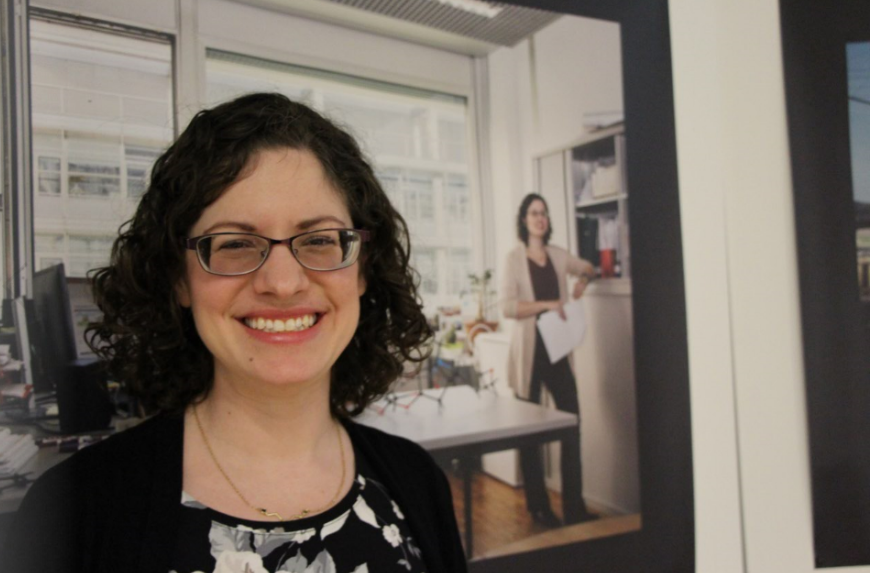
Renana Gershoni-Poranne in front of her exhibition portrait (photo credit: ETH Zurich)
About the author
Renana Gershoni-Poranne is a senior scientist and lecturer in the group of Prof. Dr. Peter Chen in the Laboratory for Organic Chemistry at the Department of Chemistry and Applied Biosciences at ETH Zurich. Dr. Gershoni-Poranne is a Branco Weiss Fellow and leads a small group within the Chen group, focusing on design of polycyclic aromatic systems for organic electronics. Aside from being a computational chemist, she is also a classically trained opera singer and in her free time, she enjoys spending time with her partner and their two boys, reading, baking, and singing.

